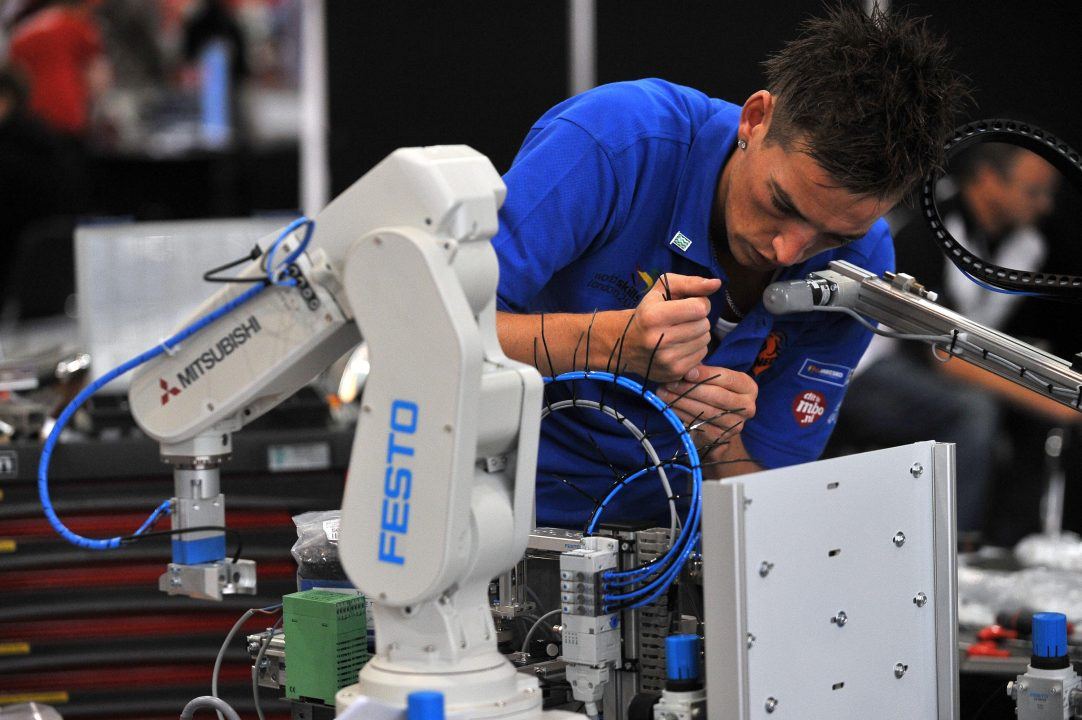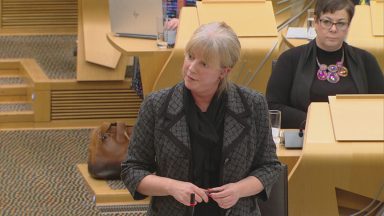Experts have urged Scottish businesses to help “shape the future workforce” by investing in upskilling young people, as a survey suggests the next generation of workers is not being given the support it needs to plug the nation’s skills gaps.
According to the Open University business barometer survey, more than half (56%) of Scottish businesses are currently experiencing a skills shortage but only about a third (35%) have specific initiatives in place to recruit, retain or train under-25s.
The survey, of more than 2,000 UK organisations and 1,000 “Gen Z” adults, also found that while the majority of Gen Z respondents are aware that Scotland has a skills gap, two-thirds (66%) have never been told they lack specific skills.
Meanwhile, 71% of Gen Z respondents said they would stay longer with an employer that offers training and development while 72% said they are considering careers based on where skills are most needed in the UK.
Researchers said the “disconnect” between employers and young people is particularly stark in the field of AI.
According to the survey, just under half (47%) of Gen Z in Scotland say they are already working in, or interested in working in, AI, but a fifth (20%) of Scottish employers say they lack the confidence to deliver their AI strategies because of a skills deficit.
Baroness Martha Lane Fox, chancellor at The Open University, said: “Employers have an incredible opportunity – and responsibility – to shape the future workforce.
“The talent is out there. Young people are motivated, they’re digitally savvy and they want to contribute. But they need clear training pathways, practical support and employers willing to invest.
“While there are economic challenges at this moment for employers, the smartest organisations won’t just wait for skills to arrive – they’ll build them, inclusively and proactively, to fuel growth and resilience.”
The survey found many businesses in Scotland were finding it difficult to recruit and train staff because of the increase in national insurance rates (58%), an increase in the minimum wage (51%) and economic uncertainty (70%).
However, the results also made clear the impact the skills shortage is having, with 44% of respondents saying it is increasing the workload for other staff, 39% pointing to reduced productivity and 35% saying they have scaled back growth or expansion plans.
David Allen, senior partnerships manager at The Open University in Scotland, said: “Scotland’s skills gap is one of the biggest long-term challenges facing our economy – but it’s also one of our greatest opportunities.
“With 56% of employers who offer apprenticeships set to hire or train more apprentices and 51% recognising they have a responsibility to fund staff training, there is real momentum building.
“However, with a third of employers citing funding as a barrier and many still without a formal skills plan, action is urgently needed.
“Flexible, inclusive training delivered in partnership with tertiary education providers can help employers retain talent, address skills shortages before they escalate and help support long-term succession planning within the business.
“We need to meet learners where they are, equip them for the future and make development a shared priority.
“The organisations that do will be the ones shaping Scotland’s growth and resilience for years to come.”
The survey also indicated continuing support for equality, diversity and inclusion (ED&I) initiatives among Scottish businesses, with 87% of firms saying ED&I was important to them, and 56% saying it will become even more important over the next five years.
However, the data shows a quarter (24%) of employers currently have no initiatives in place for underrepresented or disadvantaged groups, including returners, career changers and workers with disabilities or neurodiversities.
The researchers said this was a “missed opportunity” to broaden the talent pipeline and reduce economic inactivity, particularly in sectors facing acute workforce shortages.
A Scottish Government spokesperson said: “We welcome this report which affirms what we already know – that Scotland’s young people have talent, knowledge and enthusiasm that we want and need in our economy.
“That is why we are already undertaking a major programme of reform of the skills system to ensure that it meets Scotland’s needs and we are providing £185 million this year to deliver 25,500 new modern apprentices, 5,000 foundation apprentices and 1,200 graduate apprentices.
“We will also continue to provide support for 38,500 apprentices already in training.”
The spokesperson added: “A major driver of the skills shortages which are holding Scotland back is Brexit and UK immigration policy, and the Scottish Government has put forward proposals for a Scottish Graduate Visa to ensure we can benefit from the skills of people who want to live and work here.”
Follow STV News on WhatsApp
Scan the QR code on your mobile device for all the latest news from around the country


 PA Media
PA Media
























